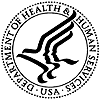
N L E A
Nutrient Labeling and Education Act
CHOLESTEROL SODIUM DIETARY FIBER VITAMINS AND MINERALS |
| Nutrition Facts Serving Size 1/2 cup (114g) Servings per Container 4 |
| Amount per Serving |
| Calories 90 Calories from Fat 30 |
| % Daily Value* |
| Total Fat 3g 5% |
| Saturated Fat 0g 0% |
| Cholesterol 0mg 0% |
| Sodium 300mg 13% |
| Total Carbohydrate 13g 4% |
| Dietary Fiber 3g 12% |
| Sugars 3g |
| Protein 3g |
| Vitamin A 80% ~ Vitamin C 60% |
| Calcium 4% ~ Iron 4% |
| * Percent Daily Values are based on a 2,000 calorie diet. Your daily values may be higher or lower depending on your calorie needs: Calories 2,000 2,500 |
|
Total Fat Less than 65g 80g Sat Fat Less than 20g 25g Cholesterol Less than 300mg 300mg Sodium Less than 2,400mg 2,400mg Total Carbohydrate 300g 375g Fiber 25g 30g |
| Calories per gram: Fat 9 ~ Carbohydrate 4 ~ Protein 4 |
TOTAL FAT SATURATED FAT TOTAL CARBOHYDRATES PROTEIN |
| Nutrition Facts Serving Size 1/2 cup (114g) Servings per Container 4 |
| Amount per Serving |
| Calories 90 Calories from Fat 30 |
| % Daily Value* |
| Total Fat 3g 5% |
| Saturated Fat 0g 0% |
| Cholesterol 0mg 0% |
| Sodium 300mg 13% |
| Total Carbohydrate 13g 4% |
| Dietary Fiber 3g 12% |
| Sugars 3g |
| Protein 3g |
| Vitamin A 80% ~ Vitamin C 60% |
| Calcium 4% ~ Iron 4% |
| * Percent Daily Values are based on a 2,000 calorie diet. Your daily values may be higher or lower depending on your calorie needs: Calories 2,000 2,500 |
|
Total Fat Less than 65g 80g Sat Fat Less than 20g 25g Cholesterol Less than 300mg 300mg Sodium Less than 2,400mg 2,400mg Total Carbohydrate 300g 375g Fiber 25g 30g |
| Calories per gram: Fat 9 ~ Carbohydrate 4 ~ Protein 4 |
homepage
FDA Mission: Protect Public Health